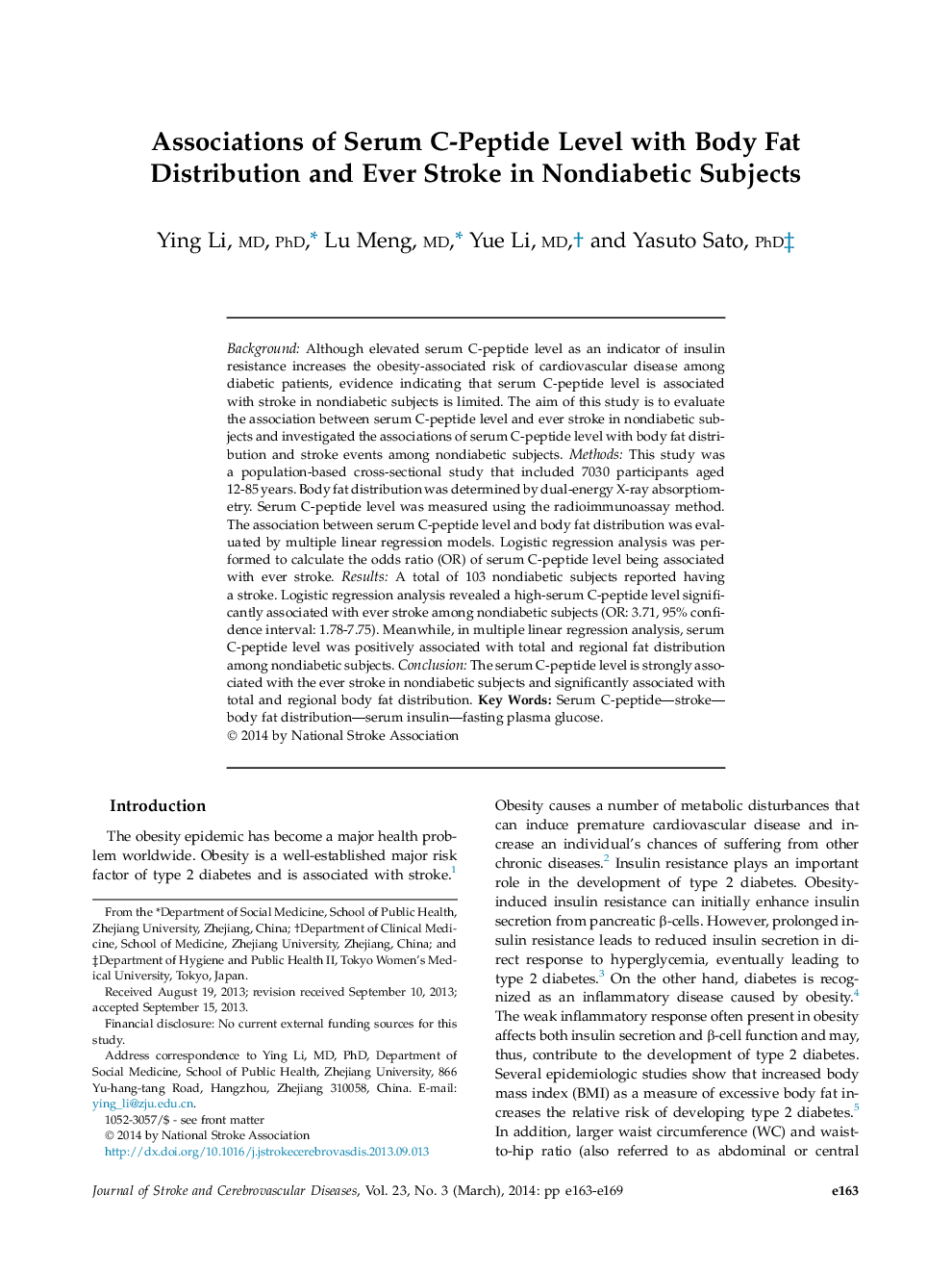| Article ID | Journal | Published Year | Pages | File Type |
|---|---|---|---|---|
| 2704176 | Journal of Stroke and Cerebrovascular Diseases | 2014 | 7 Pages |
BackgroundAlthough elevated serum C-peptide level as an indicator of insulin resistance increases the obesity-associated risk of cardiovascular disease among diabetic patients, evidence indicating that serum C-peptide level is associated with stroke in nondiabetic subjects is limited. The aim of this study is to evaluate the association between serum C-peptide level and ever stroke in nondiabetic subjects and investigated the associations of serum C-peptide level with body fat distribution and stroke events among nondiabetic subjects.MethodsThis study was a population-based cross-sectional study that included 7030 participants aged 12-85 years. Body fat distribution was determined by dual-energy X-ray absorptiometry. Serum C-peptide level was measured using the radioimmunoassay method. The association between serum C-peptide level and body fat distribution was evaluated by multiple linear regression models. Logistic regression analysis was performed to calculate the odds ratio (OR) of serum C-peptide level being associated with ever stroke.ResultsA total of 103 nondiabetic subjects reported having a stroke. Logistic regression analysis revealed a high-serum C-peptide level significantly associated with ever stroke among nondiabetic subjects (OR: 3.71, 95% confidence interval: 1.78-7.75). Meanwhile, in multiple linear regression analysis, serum C-peptide level was positively associated with total and regional fat distribution among nondiabetic subjects.ConclusionThe serum C-peptide level is strongly associated with the ever stroke in nondiabetic subjects and significantly associated with total and regional body fat distribution.
